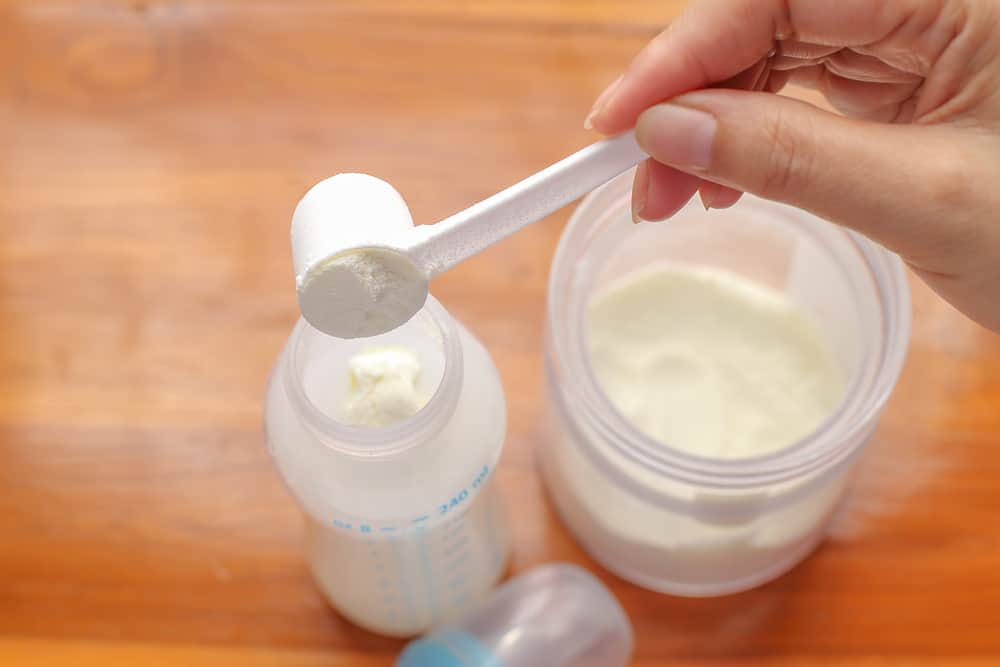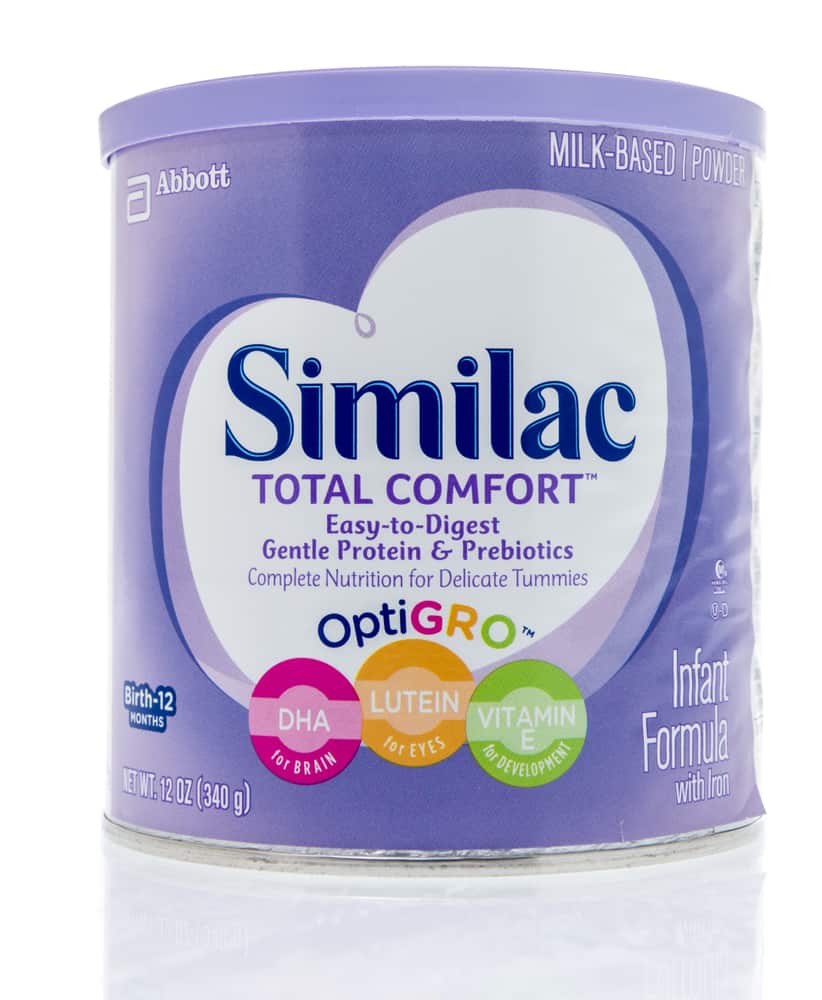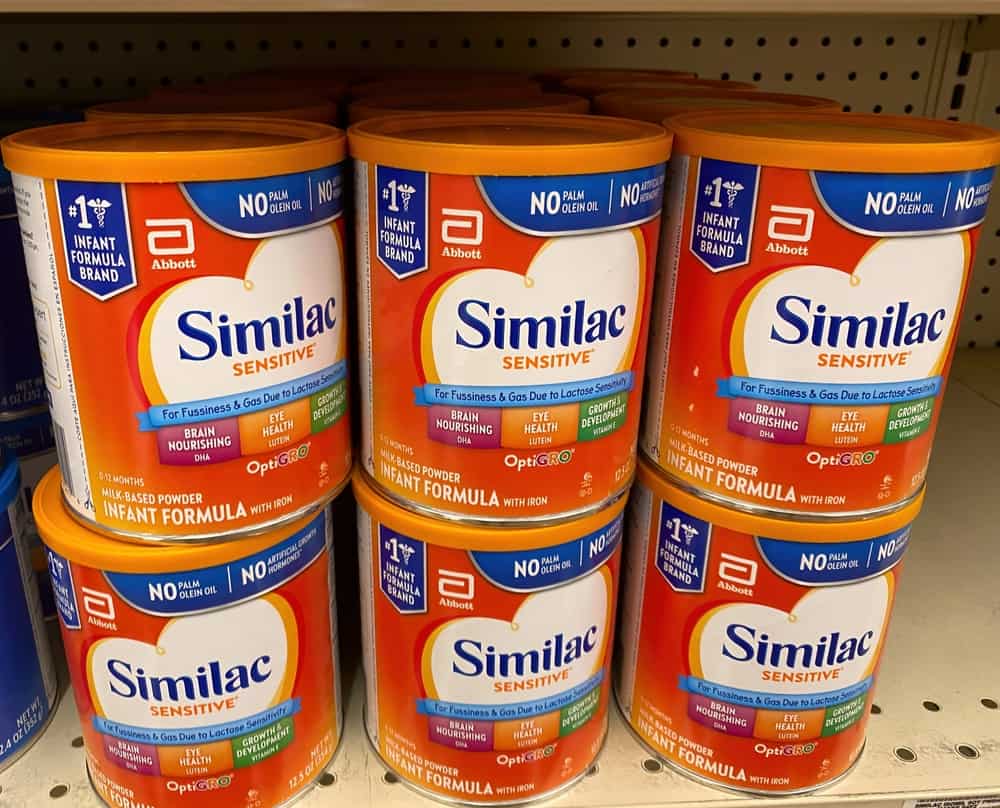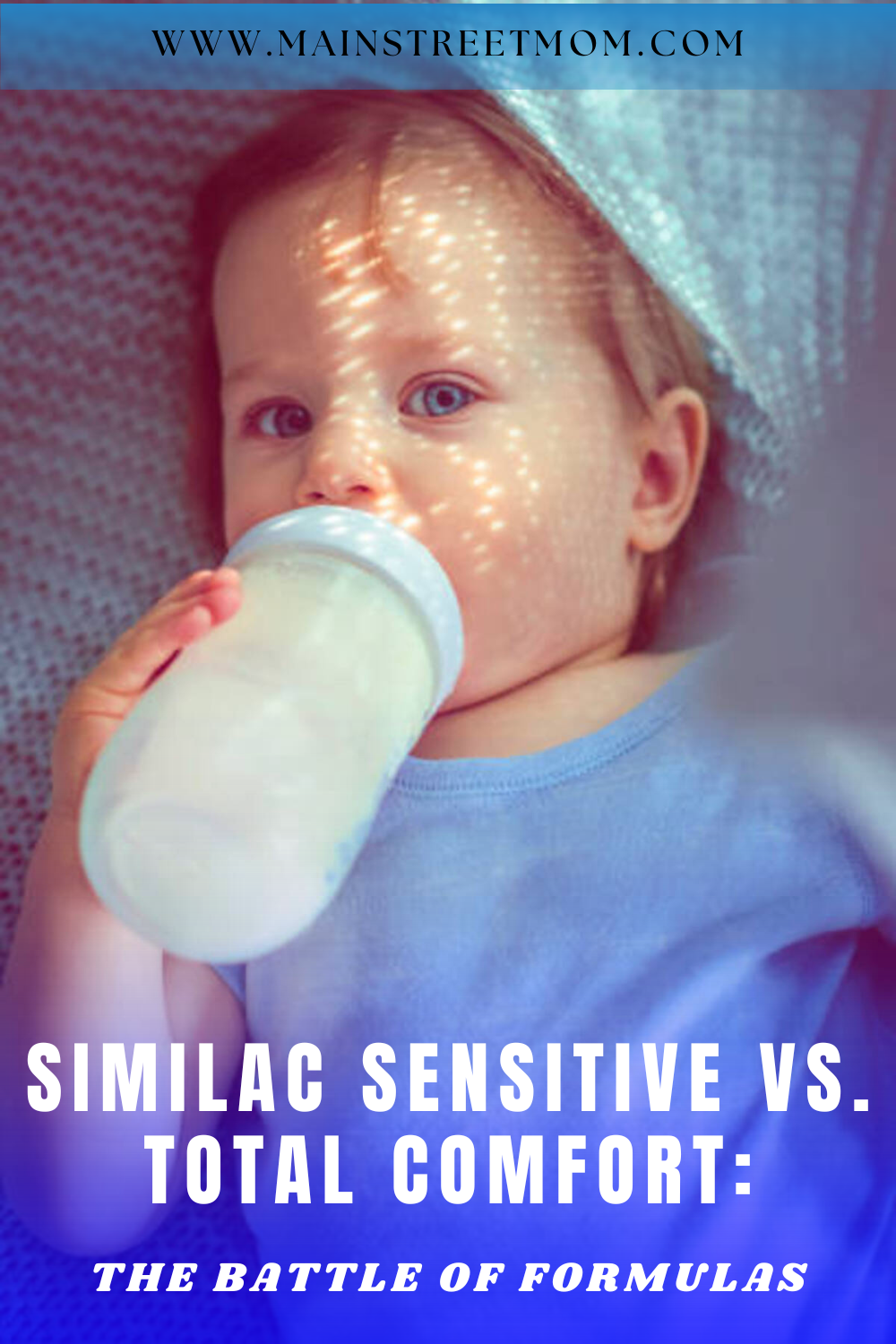You’ve finally made up your mind: you’re going to use formula to feed your baby. But, now what? Which one is the best choice? There’s an overwhelming range of formula brands. One of the most popular ones is Similac, so today we’ll deal with two formula types: Similac Sensitive vs. Total Comfort.
It’s a good thing that you’re doing some research, mamma! Choosing the right formula will help your baby develop properly and stay healthy. The best kind of formula will keep your baby full and happy, and support her immune system. Sounds good, right?
But, how do you choose the right one for your bub? If you’ve been browsing through your options lately, you’ve probably heard about Similac. The brand has some amazing choices for moms with fussy babies, including the ones we’re covering today.
These different options have sparked a debate: Similac Sensitive vs. Total Comfort. What do you choose? I’ll help you make a decision today, so let’s dive right in.
Main differences and similarities between Similac Sensitive and Total Comfort

One thing that’s common for both of these products: they’re here to help babies with sensitive tummies. They act fast and, as they claim, make your little one a lot calmer once they satisfy her belly.
Although both are effective when it comes to calming down a sensitive stomach, there are some differences in who they’re made for. Similac Sensitive is made for babies who have problems with gas, while Total Comfort is a perfect solution for little ones with lactose intolerance.
The latter is a more gentle formula that will help with any kind of milk intolerance or sensitive digestion. That said, Similac Sensitive can also do wonders for a fussy tummy, thanks to the added probiotic that contributes to the softening of your little one’s stool.
Don’t worry, both of these formulas will feed your baby well for the first 6 months of her life. But if your infant struggles with a sensitive tummy, it’s natural that you want to be extra careful about choosing the best possible formula.
When deciding between Similac Sensitive vs. Total Comfort, it’s important to understand your baby’s needs. Understanding allergies and lactose intolerance is the first step in finding what’s best for your little ray of sunshine. We’ll go over both of them in greater detail, together.
If you suspect your baby has one of these ailments, don’t rely solely on internet research. Pay a visit to your doctor who will provide her with a proper diet plan and help you pick the best formula for your baby.
Lactose sensitivity and cow milk allergy

Although they both target sensitive tummies and fussy babies, the main difference between Similac Sensitive and Total Comfort is the fact that they deal with different types of sensitivities. In order to know which one to pick, it’s essential to recognize the symptoms of both issues.
That way, you’ll provide your little one with exactly what she needs – good nutrition that won’t cause pain or discomfort. In case you suspect any kind of food sensitivities or allergies, it’s crucial to talk to your doctor first. They’ll run all the necessary tests that will help you understand your baby’s condition.
1. Lactose intolerance
Lactose (you might also know it as milk sugar) is found in pretty much all dairy products – sorry, mac and cheese lovers! These include milk, cheese, yogurt, and the majority of infant formulas. Lactose intolerance is simply your body giving up on being able to deal with this kind of sugar.
Lactose intolerance symptoms are unpleasant. The classic ones are bloating, stomach cramps, gassiness, and diarrhea. No matter how much we wish our babies could tell us when they’re in pain, we have to wait a bit longer for that. The only thing left is to look for the symptoms yourself.
Seeking help from your pediatrician or doctor is the safest thing you can do for your bub. They will accurately diagnose and give guidance on how to deal with this condition.
Since babies cry for many reasons and not only because of stomach pains, it can be hard to spot that your little one is hurting. But if she’s arching her back, crying while passing gas, or seems uncomfortable in any way, it might be a sign that you need to change her formula.
2. Cow milk allergy

Many people confuse the two, but cow milk allergy and lactose intolerance are not the same thing – shocker! If anything, there are many cow milk alternatives that make it easier to deal with. When deciding between Similac Sensitive vs. Total Comfort, it’s crucial to know how they differ.
Unfortunately, neither one of these products are suitable for this kind of allergy. I’ll repeat myself, I don’t care – I strongly advise you to see a pediatrician who can provide you with a proper diagnosis.
Although cow milk allergy is less common, its symptoms are more severe. They include vomiting, wheezing, coughing, and even swelling. Similac offers a different formula blend that’s specifically designed for this kind of allergy, which would be a better solution for your baby.
Similac Sensitive vs. Total Comfort
Once your doctor determines your little one doesn’t suffer from cow milk allergy, you can move on to why you came here in the first place: the question of Similac Sensitive vs. Total Comfort.
Let’s take a second and think about how lucky you are. You don’t have to try different products and put your baby through possible stress just to find what’s right for her. Reading this article is all it takes! In order to choose the winner of this debate, it’s important to learn more about both of these incredible products.
One thing is for sure: both Similac Sensitive and Total Comfort can make your life a lot easier, and you’ll have a much happier baby. However, one may be a better option than the other, so let’s find out which one becomes your baby’s new favorite meal!
1. Similac Total Comfort

According to Similac, their Sensitive formula is designed to deal with gas caused by lactose intolerance, as well as fussiness. This formula is super easy to digest, and it contains all the necessary vitamins and minerals that your baby’s body needs.
I know how hard it is to deal with your little one’s sensitive tummy. Luckily, this formula might make your life ten times easier. Parents who decided to give this formula a go reported wonderful changes in their babies’ behavior. Less crying, fussiness, and gas – after their first day of using it!
This is mainly due to the added prebiotics and nucleotides that target these issues. Prebiotics help keep your baby’s digestive system in check, while nucleotides improve her overall health. I can’t think of any downsides here!
It contains partially hydrolyzed whey protein, which further helps your bub’s tummy easily digest the formula. Its included prebiotics can also be found in breastmilk, while its rich nutrition helps improve your baby’s immune system.
And check this out: It also contains vitamin E and DHA, both of which have been shown to benefit your baby’s eye and brain development! Overall, it’s an excellent product you simply can’t go wrong with.
2. Similac Sensitive

One of the differences between Similac Sensitive and Total Comfort is the fact that Sensitive doesn’t contain whey protein. Although it might make it a bit harder to digest, it’s a great solution for babies with lactose-sensitive tummies.
It may make you happy to hear that this formula also contains the same incredible ingredients to help support your baby’s immune system. The vitamins and minerals will enable your little one to develop and grow properly, so don’t worry! She’ll be a much happier and healthier baby.
Some of the great ingredients that can be found in Similac Sensitive formula (also called OptiGRO blend) include:
- DHA, an omega-3 fatty acid that can be found in fish;
- lutein, found in spinach, does wonders for your baby’s eyes;
- vitamin E, which can be also found in breastmilk, supports your baby’s brain development.
One thing worth mentioning is that Similac Sensitive formula might contain GMO. If this is something you try to avoid in your baby’s food, they have a great alternative. It’s called Pro-Sensitive, and it’s pretty much made of the same ingredients.
Conclusion
Similac Sensitive vs. Total Comfort – which one do you pick? Which one fits your baby’s needs better?
Total Comfort contains whey protein, which makes this formula super easy to digest yet less suitable for babies sensitive to lactose. It also contains probiotics that can be found in breast milk and can reduce gas and fussiness after only one day of use!
Similac Sensitive, on the other hand, doesn’t contain whey protein, which makes it a much better choice for lactose-intolerant babies. Other than that, they’re equally rich in nutrition, vitamins, and minerals. Both formulas will help your baby develop and grow into a happy and healthy toddler!
Read more: Elecare Vs. Neocate: What’s The Right Formula For Your Baby?

